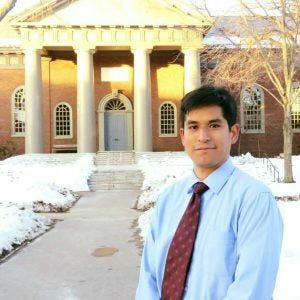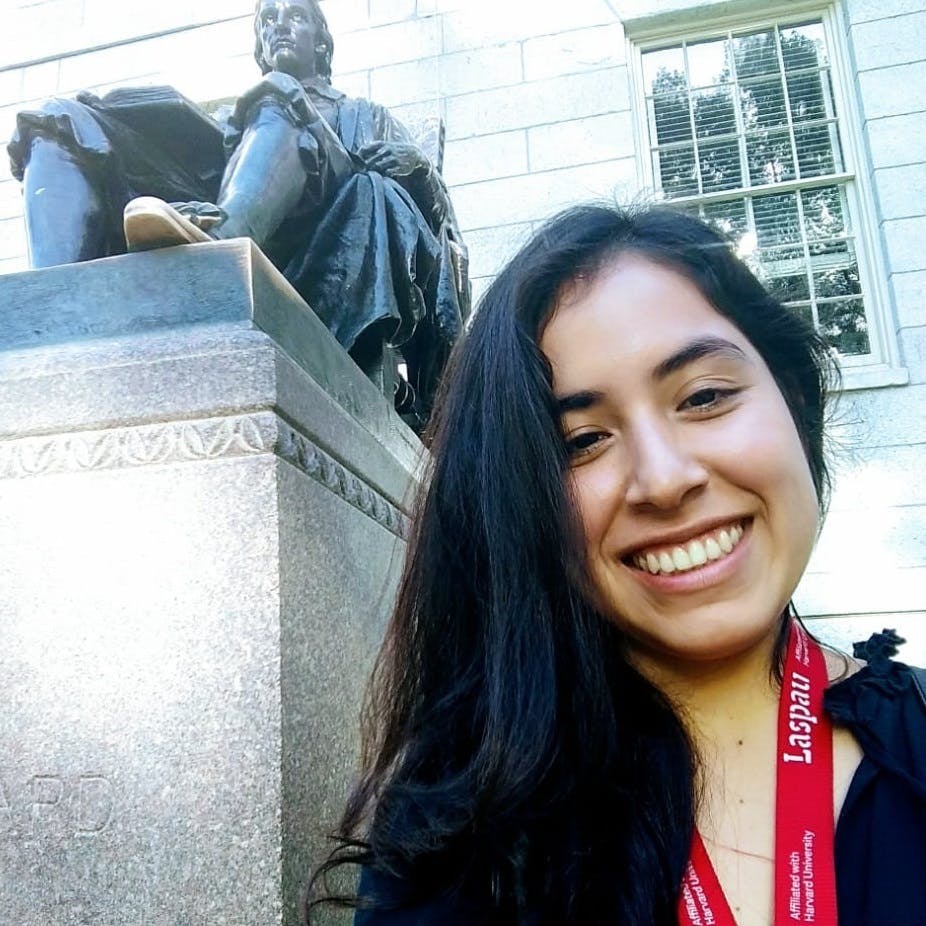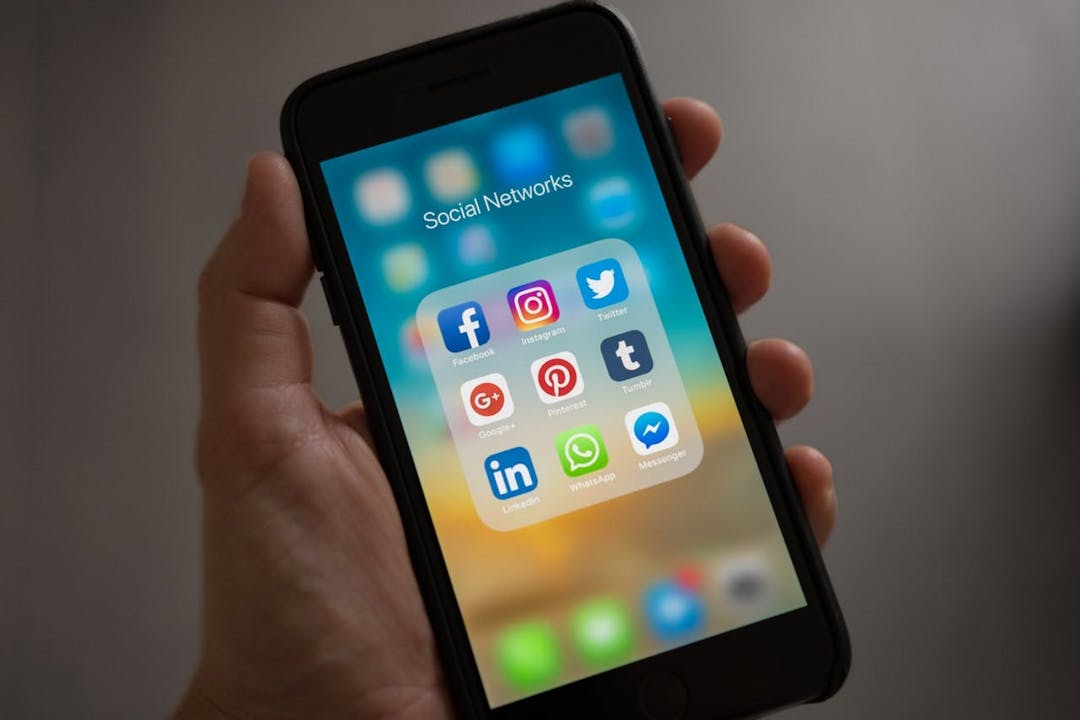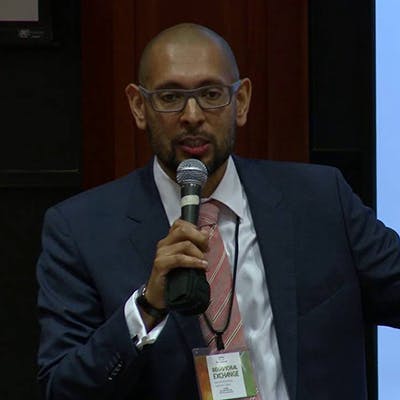Tackling Conspiracy Theories Amid COVID-19
Bill Gates, 5G, microchips, global control, coronavirus, human creation. These words may not seem related but they are significant for many conspiracy theorists. However, beliefs alone cannot hurt anyone, right? In fact, they are not as benign as they seem and can lead to several problems, especially in times that are as chaotic and indecisive as the present.
But how can people believe something without any valid proof? It is valid to be skeptical of any particular event, but it is another thing to be hyper skeptical and overinterpret evidence.11 As Carl Sagan, astronomer and science communicator, once proclaimed: “the extraordinary must certainly be pursued. But extraordinary claims require extraordinary evidence.”
Indeed, that is the rule to follow, but often the opposite happens. Things of great magnitude are affirmed with total conviction, which only reflects inconsistency and contradiction because, of course, these “extraordinary claims” are not supported by “extraordinary evidence”. Sadly, many people see extraordinary claims as absolute truths, which proliferates misinformation. This can have serious consequences.
Faced with a pandemic that requires large-scale behavioral changes and threatens considerable psychological strain, social and behavioral sciences emerge to address this challenge.18 By understanding the psychology behind conspiracy theories and knowing their effects, it is feasible to dismantle them and align people’s conduct with public health recommendations.
Behavioral Science, Democratized
We make 35,000 decisions each day, often in environments that aren’t conducive to making sound choices.
At TDL, we work with organizations in the public and private sectors—from new startups, to governments, to established players like the Gates Foundation—to debias decision-making and create better outcomes for everyone.
A long history
Conspiracy theories are not unique to our time. They have prevailed for many centuries, spreading more intensely in times of crisis.19 The content of a series of letters sent to the New York Times and Chicago Tribune between 1890 and 2010 reveal that the highest peaks for conspiratorial belief were located in the height of the second industrial revolution and the beginning of the Cold War. If we go further back to AD 64, where Nero, the Roman emperor, intentionally and unjustifiably blamed Christians for burning Rome, conspiracy theories caused many to be sacrificed or burned alive.19 For their part, people who believe in conspiracy theories are not satisfied with official explanations for global phenomena; instead, they prefer to think that malevolent organizations or individuals want to take control of the world.
Social psychology has been unraveling the mysteries behind the different types of irrational thoughts through biases and heuristics.8 The study of conspiracy theories has developed alongside this discovery of irrational behavior. Research led by Karem Douglas,3 a professor of social psychology at the University of Kent, suggests that conspiracy theories satisfy certain psychological needs, and not necessarily conscious ones. Namely, the need to understand things, a desire to have control over situations, and the need for a positive self-image.
Other studies have found correlations with personality factors such as meanness, mistrust, openness to experience, and Machiavellian behavior, which is a focus on self-interest at the cost of manipulating others.9 Evidence has even been found to show that people who believe in conspiracy theories are more likely to accept or engage in daily criminal activities.7
In fact, research suggests that conspiracy theories are more harmful than good.3 These can encourage the rejection of conventional medicine, scientific consensus, and democratic organization.3 The combination of these effects makes perfect sense in contrast to the current misinformation “infodemic”17 plagued by villains and miracle cures.
To be in control
Living in uncertainty can be incredibly stressful; consequently, psychologists have ventured to perform different types of experiments to test how we engage with uncertain circumstances.1 Finding yourself in the midst of a pandemic because of an unknown virus that is claiming the lives of hundreds of thousands of people and has shaken the world economy only exacerbates the uncertainty of our lives. Human beings facing this type of situation have used different biases to try to have their inner world controlled and stable.
Research suggests that people dissatisfied with small-scale explanations may need to explain large-scale events with causes of a similar magnitude.10 When institutional explanations feel unsatisfactory, they may create a version of events that accords with the magnitude of the problem.
A perceived lack of control could explain conspiracy theories as an opportunity to reject official reports and allow someone to exert control over information.5 In turn, this lack of control could activate the adaptive ability to see illusory patterns around us to reduce uncertainty.20 People who have the greatest propensity to see these types of patterns are those who have more deep-rooted beliefs about conspiracy theories.21
I know things that “they” don’t
At some point or other, most of us have wanted to stand out from the crowd. This motivation to feel different from others—unequally distributed among people—is clearly reflected in day-to-day decision-making, whether buying a unique article of clothing that very few can get13 or perhaps “acquiring” an unusual belief.9 This last aspect is where conspiracy theories fit perfectly so that people can demonstrate their uniqueness by seeing these beliefs as unique and original possessions.9 What could be more “unique” than thinking that we are lab rats for the Bill and Melinda Gates Foundation or that 5G antennas spread the current virus?
Research carried out by Lantian et al.9 argues that people who have a greater need for uniqueness are more likely to believe in such theories, which, by their own nature, have the characteristics of being unconventional and potentially scarce information. The secret plots in which conspiracy theories are developed make people feel special as it allows them to self-identify themselves as more informed people about what is happening in the world.
By relying so much on this information, you can get to the point where you believe yourself to be more knowledgeable than the real experts about the event itself.9 With this in mind, it is not surprising that theorists react in disbelief or mockery in response to official sources of information. In fact, conspiracy theories diminish confidence in government and scientific institutions.4,6
“They” are the culprits
Conspiracy theories fulfill the same function as deities in ancient times. When Deities were blamed for unfortunate events and myths that explained these events spread It seems that conspiracy theories now fulfill that role, despite our scientific advancement.19 It also happens in politics, when “incompetent rulers” are blamed for everything. However, blaming others, in this case, “villains with macabre plans” and we as “the victims”, can also easily lead to disengaging from any kind of responsibility.2 It is the perfect excuse: “I cannot infect someone with coronavirus by not wearing a mask; instead, they are the culprits for creating a biological weapon that is killing us.” Unfortunately, this is how it often falls when it comes to a lack of self-care to fight COVID-19.
In the current context, people begin to reject medical treatments or resist a future COVID-19 vaccine based on unfounded ideas (e.g. “the vaccine seeks to implant a chip”). Instead, they start to come up with alternative treatments that are ineffective or prohibited, and that could lead to lethal consequences (e.g. death from ingestion of chlorine dioxide).
Vulnerability, loneliness, and lack of power
One of the social reasons that Douglas suggests are behind conspiracy theories refers to groups in vulnerable conditions with an objectively low status: people in a state of poverty or belonging to a “losing” group.2,3 His studies suggest that these groups may take to conspiracy theories as a defensive response to displace other reasons for the disadvantaged state in which they find themselves.
Swami & Coles14 also found that people who believe in conspiracy theories are likely to have greater feelings of helplessness, social isolation, and anomie—subjective deviation from social norms. It is also observed that people who perceive themselves as misaligned have alternative explanations when rejecting official sources and seek to satisfy their need for belonging by going to conspiratorial groups or marginalized subcultures.12 This is how people who feel powerless with their reality and ignore the norms of society as unfair can quickly dive into conspiracy theories.12
The AI Governance Challenge
Biases and more biases
We prefer dispositional explanations a thousand times over situational ones; this is based on the natural tendency to think that behind the occurrence of an event there must be a reason: “accidents do not exist”.
Studies show that people who are more likely to believe in conspiracy theories tend to overestimate concurrent events, assigning them to an intentionality that does not exist or is unlikely, which is called the fundamental attribution error.2 We thus observe that conspiracy theories are guided more by people’s intentions rather than by an objective truth that one wants to discover, which is certainly also linked to lower levels of analytical thinking.15
The conjunction fallacy is also present when a concurrent event with several conditions involved is considered more credible than a general one. We consider it more representative, even if it does not make sense.16 This is relevant for conspiracy theories because the unlimited details of conspiracies make them seem more credible. From a conspiracy theorists point of view, Bill Gates is a billionaire, something that gives him great power, he “predicted” that there would be a pandemic in the future, the virus was born in China, Bill Gates has a laboratory in China, so Bill Gates must have created the coronavirus. Almost logical, isn’t it? But, misleading of course.
Within all this blindness, the relationship between the confirmation bias and conspiracy theories has also come to light, where conspiracy theorists unhesitatingly accept information that confirms their preconceptions and resist accepting information that refutes their ideas.2 This fact builds a giant wall to break down in the fight against conspiracy theories. People turn to pages that only reinforce their point of view and, in the end, make the conspiracy theory cycle hard to break.
What can we do?
Based on the study of the psychology of conspiracy theories, Lewandosky & Cook11 offer us practical strategies to face the whirlwind of these theories that are currently fueled by the uncertainty of the pandemic.
One of them is inoculation or precombustion. Just as a vaccine is inoculated to release a small amount of a virus and build immunity to it, in the same way, before conspiracy theories fully engulf a person, they can be warned of their danger by developing greater resilience to them. An inoculation that allows awareness of the inconsistency of a conspiracy theory could be enough to destroy it. To directly discredit a conspiracy theory, you can also choose to disprove it by providing precise evidence that disproves it or by using the logic behind it by exposing the faulty reasoning on which it is based.
Considering that people with reduced control of their reality or who are perceived as vulnerable are more likely to believe in conspiracy theories, the opposite effect can be generated if they are “cognitively empowered”. For example, they can be encouraged to think analytically instead of being carried away by their intuition or by motivating them to recall moments in their life where they have had control in such a way that a sense of control is generated. It is also possible to empower citizens by making them perceive that principles of procedural justice have been followed regarding decisions made by the government. Even if there are unfavorable results, people will be more accepting of them, rather than dropping onto a search for global villains.
However, for a conspiracist who does not go to external evidence and goes into an echo chamber of conspiracy theories, it is much more complicated. How to talk to them? The following matrix summarizes the strategies that can be followed:
| Show empathy | Listen to them carefully and try to build a mutual understanding. |
| Affirm critical thinking | You are dealing with people who consider themselves as critical thinkers, reaffirm that sentiment and take advantage of it! Guide them to analyze even more critically what they believe. |
| Avoid ridicule | Ridiculing a conspiracy is almost a guarantee of total rejection. You do not intend to win an argument. Avoid it as much as possible. |
| Use trusted messengers | Showing ex-conspiracy members or respected characters refuting conspiracy theories will allow for a more positive evaluation and a more impactful and lasting mark of memory. |
Show empathy Listen to them carefully and try to build a mutual understanding. Affirm critical thinkingYou are dealing with people who consider themselves as critical thinkers, reaffirm that sentiment and take advantage of it! Guide them to analyze even more critically what they believe. Avoid ridicule Ridiculing a conspiracy is almost a guarantee of total rejection. You do not intend to win an argument. Avoid it as much as possible. Use trusted messengers Showing ex-conspiracy members or respected characters refuting conspiracy theories will allow for a more positive evaluation and a more impactful and lasting mark of memory.
Conclusions
Disinformation and conspiracy theories can lead to troubling outcomes, hence, it is necessary to recognize them as a serious social problem. What better way is there to do so than understand their background, and work on effective strategies that any person or entity can put into practice.
One must be aware of the responsibility that comes with handling incorrect information, especially in social networks where it proliferates. There are people who share conspiracy theories, even if they do not actually believe in them, which is worrisome.
Finally, we want to emphasize that this article is not intended to discredit all kinds of conspiracies, because unfortunately there have been real conspiracies (e.g. the Watergate scandal), nor is anyone denying that there are people who can weave large-scale deceptions. The search for the truth is fair and necessary, but not with the wrong tools, full of imprecise thoughts and inconsistencies. Rather than looking for patterns where there are none, value healthy skepticism, evidence, and consistency,11 which will leave the doors open to find what is really out there.
References
- De Berker, A. O., Rutledge, R. B., Mathys, C., Marshall, L., Cross, G. F., Dolan, R. J., & Bestmann, S. (2016). Computations of uncertainty mediate acute stress responses in humans. Nature Communications, 7(1). Article 10996. https://doi.org/10.1038/ncomms10996
- Douglas, K. M., Sutton, R. M., & Cichocka, A. (2017). The Psychology of Conspiracy Theories. Current Directions in Psychological Science, 26(6), 538-542. https://doi.org/10.1177/0963721417718261
- Douglas, K. M., Uscinski, J. E., Sutton, R. M., Cichocka, A., Nefes, T., Ang, C. S., & Deravi, F. (2019). Understanding Conspiracy Theories. Political Psychology, 40(S1), 3-35. https://doi.org/10.1111/pops.12568
- Einstein, K. L., & Glick, D.M. (2014). Do I Think BLS Data are BS? The Consequences of Conspiracy Theories. Political Behavior, 37(3), 679-701. https://doi.org/10.1007/s11109-014-9287-z
- Goertzel, T. (1994). Belief in Conspiracy Theories. Political Psychology, 15(4), 731-742. https://doi.org/10.2307/3791630
- Jolley, D., & Douglas, K.M. (2014). The Effects of Anti-Vaccine Conspiracy Theories on Vaccination Intentions. PLoS ONE, 9(2), e89177. https://doi.org/10.1371/journal.pone.0089177
- Jolley, D., Douglas, K. M., Leite, A.C., & Schrader, T. (2019). Belief in conspiracy theories and intentions to engage in everyday crime. British Journal of Social Psychology,58(3), 534-549. https://doi.org/10.1111/bjso.12311
- Kahneman, D. (2011). Thinking, Fast and Slow. Farrar, Straus and Giroux.
- Lantian, A., Muller, D., Nurra, C., & Douglas, K. M. (2017). “I Know Things They Don’t Know!” Social Psychology, 48(3), 160-173. https://doi.org/10.1027/1864-9335/a000306
- Leman, P. J., & Cinnirella, M. (2013). Beliefs in conspiracy theories and the need for cognitive closure. Frontiers in Psychology, 4. Article 378. https://doi.org/10.3389/fpsyg.2013.00378
- Lewandowsky, S., & Cook, J. (2020). The Conspiracy Theory Handbook. Available at http://sks.to/conspiracy
- Moulding, R., Nix-Carnell, S., Schnabel, A., Nedeljkovic, M., Burnside, E. E., Lentini, A. F., & Mehzabin, N. (2016). Better the devil you know than a world you don’t? Intolerance of uncertainty and worldview explanations for belief in conspiracy theories. Personality and Individual Differences,98,345-354. https://doi.org/10.1016/j.paid.2016.04.060
- Simonson, I., & Nowlis, S. M. (2000). The Role of Explanations and Need for Uniqueness in Consumer Decision Making: Unconventional Choices Based on Reasons. Journal of Consumer Research,27(1), 49-68. https://doi.org/10.1086/314308
- Swami, V., & Coles, R. (2010). The truth is out there. The Psychologist, 23(7), 560–563.
- Swami, V., Voracek, M., Stieger, S., Tran, U.S., & Furnham, A. (2014). Analytic thinking reduces belief in conspiracy theories. Cognition, 133(3), 572-585. https://doi.org/10.1016/j.cognition.2014.08.006
- Tversky, A., & Kahneman, D. (1983). Extensional versus intuitive reasoning: The conjunction fallacy in probability judgement. Psychological Review, 90(4), 293–315. http://dx.doi.org/10.1037/0033-295X.90.4.293..
- United Nations. (2020, 31 marzo). UN tackles ‘infodemic’ of misinformation and cybercrime in COVID-19 crisis. https://www.un.org/en/un-coronavirus-communications-team/un-tackling-%E2%80%98infodemic%E2%80%99-misinformation-and-cybercrime-covid-19
- Van Bavel, J. J., Baicker, K., Boggio, P. S., Capraro, V., Cichocka, A., Cikara, M., Crockett, M. J., Crum, A. J., Douglas, K. M., Druckman, J. N., Drury, J., Dube, O., Ellemers, N., Finkel, E. J., Fowler, J. H., Gelfand, M., Han, S., Haslam, S. A., Jetten, J., … Willer, R. (2020). Using social and behavioural science to support COVID-19 pandemic response. Nature Human Behaviour, 4(5), 460-471. https://doi.org/10.1038/s41562-020-0884-z
- Van Prooijen, J. W., & Douglas, K. M. (2017). Conspiracy theories as part of history: The role of societal crisis situations. Memory Studies, 10(3), 323-333. https://doi.org/10.1177/1750698017701615
- Wang, C., Whitson, J., Menon, T., Kim, J., & Webster, B. D. (2020, 17 agosto). How to Inoculate Your Team Against Conspiracy Theories. Harvard Business Review. https://hbr.org/2020/07/how-to-inoculate-your-team-against-conspiracy-theories
- Whitson, J. A., & Galinsky, A. D. (2008). Lacking Control Increases Illusory Pattern Perception. Science, 322(5898), 115-117. https://doi.org/10.1126/science.1159845
About the Authors
Marco Carrasco Villanueva
Marco Carrasco holds an M.Sc. in Economics and Psychology from the University of Paris 1: Panthéon - Sorbonne, Summa Cum Laude. He has previously worked at the Organization of American States in Washington, DC, and the Ministry of Development and Social Inclusion of Peru. He has researched at the Shanghai Academy of Social Sciences in China and the National University of San Marcos in Peru. He is a Co-Founder of the Peruvian NGO Behavioral Economics & Data Science Team (BEST) and has been a lecturer and guest speaker in various international seminars and events related to his areas of specialization: behavioral economics, and Asia and Latin America economic development. He is a current MPA-ID candidate at Harvard Kennedy School, where he is also conducting research and has assumed the Professional Development Chair of Harvard Behavioral Insights Student Group.
Raquel Sanchez
Raquel is a psychology student who is passionate about researching human behavior and its inner motivations. She has completed an academic residency at Harvard University and MIT focused on the development of leadership, innovation, and research competencies; and an academic exchange at the Faculty of Economic Sciences of the National University of Colombia where she studied human behavior in market and organizational interactions. She has been a teaching assistant at the Faculty of Psychology at the National University of San Marcos and is part of IPEC, a group that encourages research on subjects related to psychology and economics. She has also participated as a coordinator in various volunteer activities aimed at promoting inclusive education and the development of leadership skills. Her interests focus on the application of social psychology and behavioral economics in public policy.






